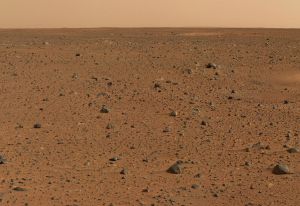

MedFriendly®


Abiosis/Abiotic
Abiosis is a condition or situation in which life cannot
exist. Abiotic means pertaining to abiosis and is
sometimes used to describe something that is not
living. For example, the term “abiotic component”
refers to non-living chemical and physical features in
the environment (e.g., soil, light, temperature,
radiation, weather, wind patterns, habitat type, water,
atmospheric gas) that affect the ecosystem.
An abiotic environment.
Abiotic stress is the negative impact that non-living factors have upon the environment,
the best example of which would be a natural disaster (e.g., tsunami, earthquake). For
many animals, the most significant abiotic stressor is extreme temperature change
because cold-blooded animals cannot regulate their own body temperature.
The opposite of abiotic is biotic, which means something that is living. These two terms
(biotic and abiotic) have been used as theories about the origin of crude oil, with the
biotic theory holding that it is the byproduct of decaying plant and animal life and the
abiotic theory holding that it is caused by natural chemical processes within the Earth
(and thus does not require life).
Abiosis comes from the Greek word "a" meaning "to do without," and the Greek word
"bios" meaning "life." Put the two words together and you have "to do without life."
"Where Medical Information is Easy to Understand"™
















